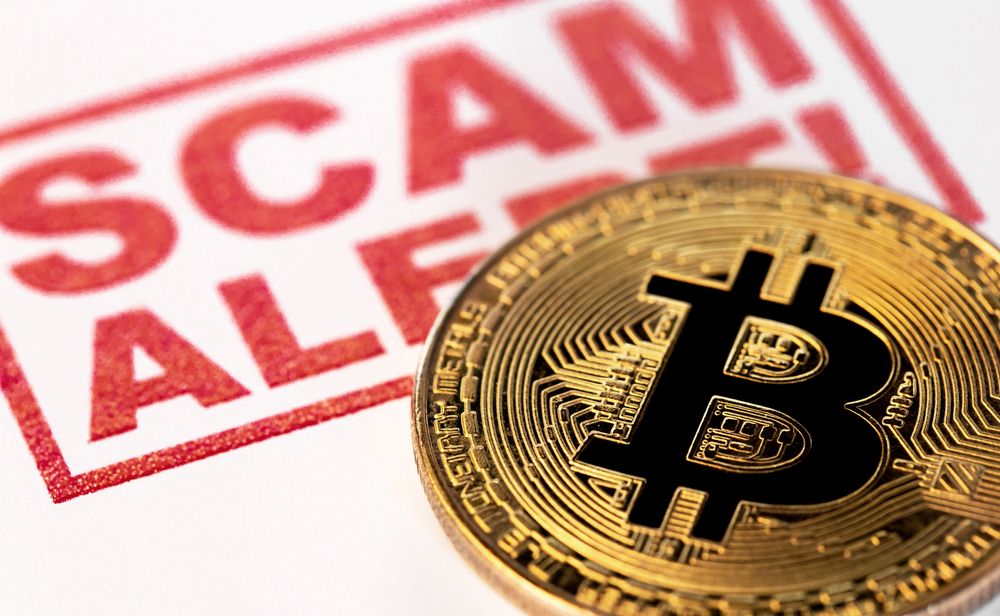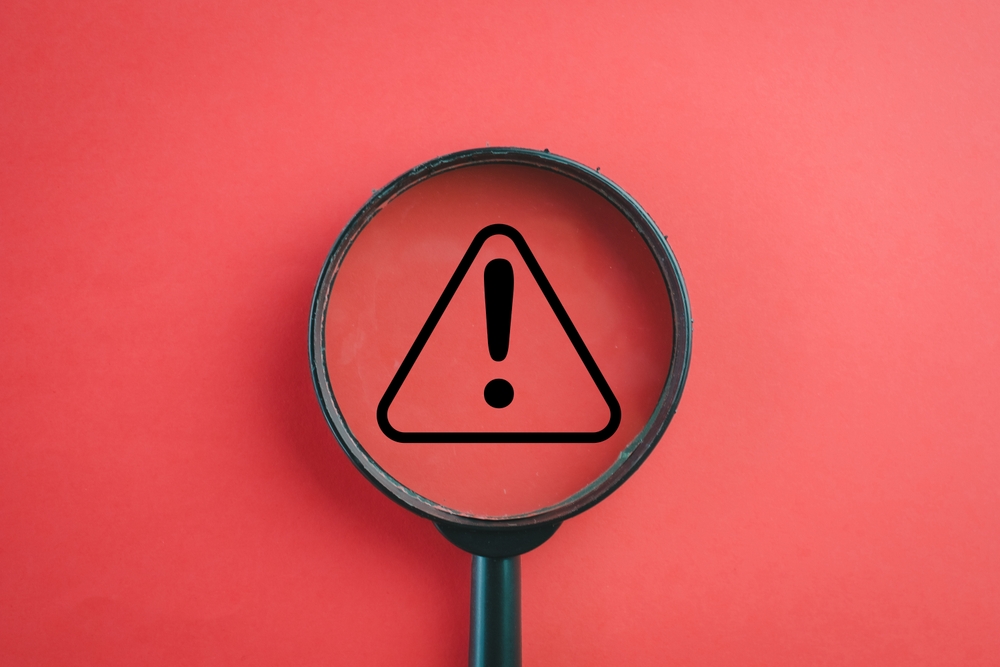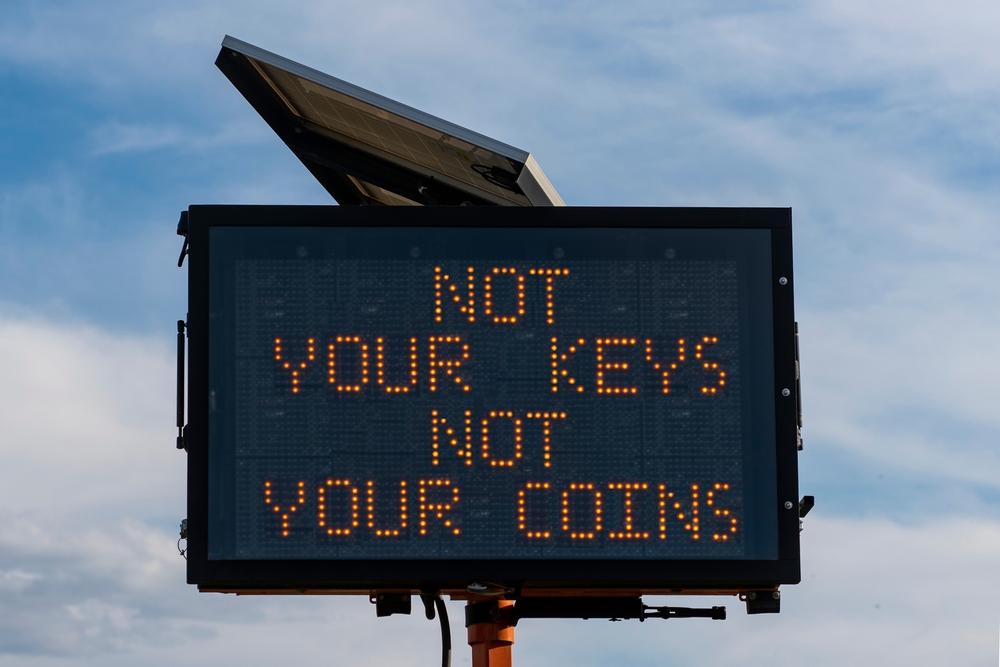Avoiding Crypto Scams: A Guide

I know firsthand how thrilling the crypto world can be, but I’ve also seen how easily scams can wipe out hard-earned investments in a flash. The fear of falling victim to cunning schemes is real, especially as scammers become more sophisticated. But don’t worry, there are ways to stay ahead and keep your assets secure. In this guide, we’ll look into practical tips to spot and avoid these pitfalls, so you can navigate the crypto landscape with confidence and peace of mind.
The Growing Problem of Crypto Scams

The crypto world is like the Wild West—exciting, uncharted, and full of opportunities. But with that excitement comes risk, especially from those looking to exploit the system. Understanding the scope of crypto scams is the first step in safeguarding your assets.
How Crypto Scams Exploit Investors
Scammers are nothing if not opportunistic. They target everyone from newbies just dipping their toes into crypto waters to seasoned traders. By leveraging the complexity and anonymity that blockchain technology offers, they create elaborate schemes that can be hard to spot. Fake investment opportunities, phishing emails that mimic legitimate services, and fraudulent initial coin offerings (ICOs) are just a few ways they try to get hold of your hard-earned crypto.
The Impact on Our Community
When scams succeed, it’s not just individual investors who suffer—it’s the entire crypto community. Financial losses can be staggering, sometimes reaching into the millions. But beyond the money, these scams erode trust. They make people hesitant to participate in the crypto space, slowing down the adoption and innovation that drives us forward. It’s a ripple effect that touches everyone involved.
Why Awareness Matters
Knowledge is our best defense against these threats. By staying informed about the latest scams and understanding how they operate, we can protect ourselves and others. Awareness turns us from potential victims into vigilant participants who can spot red flags before it’s too late. It’s about creating a community that’s not just enthusiastic about crypto but also smart and safe.
Wondering what specific scams are out there and how you can spot them before they spot you? There’s a lot to uncover, and being prepared is key.
Common Types of Crypto Scams You Need to Know

As we journey through the dynamic landscape of cryptocurrency, it’s vital to be aware of the shadows lurking around the corner. Scammers are getting craftier, and their schemes can catch anyone off guard. Let’s explore some of the most common crypto scams so you can recognize and avoid them.
Phishing Attacks in Crypto
Phishing attacks are like wolves in sheep’s clothing. Scammers create fake websites and send emails that look identical to those from legitimate crypto exchanges or wallet providers. For example, you might receive an email urging you to log into your account to resolve an urgent issue. The email looks genuine, but the link directs you to a fraudulent site designed to steal your login credentials and private keys.
According to a report from the Anti-Phishing Working Group, phishing attacks have surged, with cryptocurrency users being prime targets. It’s heartbreaking to hear stories of people losing their savings because they unknowingly entered their information on a fake site.
Fake Cryptocurrency Wallets
Imagine downloading a new wallet app that promises top-notch security and user-friendly features. It looks legit, has positive reviews, and even ranks high in app stores. You transfer your funds into it, only to find out later that your crypto is gone forever. This is the reality of fake cryptocurrency wallets.
Scammers develop counterfeit wallet apps to trick users into depositing their funds. Once the funds are in, they become inaccessible, and the scammers disappear. A notable example was the fake Trezor app that appeared on Apple’s App Store, leading users to believe it was the official app of the well-known hardware wallet.
Investment and Ponzi Schemes
We’ve all seen those ads promising incredible returns on crypto investments with little to no risk. They might even showcase testimonials from “satisfied investors” who struck it rich overnight. These are classic signs of investment and Ponzi schemes.
One infamous case was BitConnect, which promised investors high daily returns. It turned out to be a Ponzi scheme, and when it collapsed, investors lost billions. The U.S. Securities and Exchange Commission has been actively cracking down on such schemes, but new ones keep popping up.
Impersonation and Social Media Scams
Scammers often impersonate famous figures or reputable companies on social media to trick people into sending them crypto. For instance, a scammer might pose as Elon Musk, announcing a special giveaway: “Send me 1 BTC, and I’ll send you back 2 BTC!” It sounds enticing, but it’s a trap.
In 2020, a massive Twitter hack compromised high-profile accounts, including those of Barack Obama and Jeff Bezos, promoting a Bitcoin scam that netted the perpetrators over $100,000 in a matter of hours. It’s a stark reminder that if something feels off, it probably is.
These scams not only empty wallets but also erode trust in the crypto community. It’s essential to stay alert and protect yourself. But how can you spot these red flags before it’s too late?
Recognizing the Red Flags

You know that moment when something just doesn’t feel right? Trusting that gut feeling can be your best defense in the crypto world. Scammers are getting smarter, but there are telltale signs that can help you spot them before it’s too late.
Unrealistic Promises of High Returns
We’ve all heard the saying, “If it sounds too good to be true, it probably is.” In crypto, this couldn’t be more accurate. Scammers often lure investors with guaranteed profits and skyrocketing returns with little to no risk. Remember that legitimate investments come with risks, and no one can promise you high returns without any chance of loss.
For example, the infamous Bitconnect scheme promised returns of up to 40% per month. When it collapsed, countless investors lost their hard-earned money. Always be cautious of any opportunity that guarantees excessive profits—it might just be a trap.
Urgent and Pressuring Communications
Ever felt rushed into making a decision? Scammers thrive on creating a sense of urgency. They might tell you that an offer is available for a limited time or that you must act now to avoid missing out. This pressure is designed to stop you from thinking things through or doing proper research.
Take a step back and ask yourself why there’s such a hurry. Legitimate opportunities will give you the time you need to make an informed decision. Don’t let anyone push you into acting before you’re ready.
Requests for Sensitive Information
Your private keys and passwords are like the keys to your house—you wouldn’t hand them over to a stranger, right? Scammers might pose as customer support or trusted figures, asking for sensitive information to “verify your account” or “fix a problem.”
Always remember: legitimate entities will never ask for your private keys, passwords, or seed phrases. Keep this information to yourself, and be wary of anyone who requests it.
Poorly Designed Websites or Apps
Scammers often cut corners when it comes to the quality of their websites or apps. You might notice spelling errors, broken links, or interfaces that just don’t feel right. These low-quality platforms can be a sign that something isn’t right.
For instance, fake crypto wallets sometimes appear in app stores, mimicking popular wallets but with subtle differences. If you download and use one of these counterfeit apps, you could unknowingly hand over your funds to scammers.
Before you use any platform, take a close look at its design and functionality. Does it seem professional? Are there user reviews or endorsements from trusted sources? A bit of skepticism can go a long way in protecting your assets.
Spotting these red flags is crucial, but it’s just the first step. You might be wondering how to actively protect your crypto assets from these threats. I’ve got you covered—let’s explore that next.
Protecting Your Crypto Assets

When it comes to cryptocurrency, our vigilance is our strongest shield. I’ve often said, “In the world of crypto, security isn’t just a feature—it’s a necessity.” Protecting your assets is not just about reacting to threats, but proactively securing your investments.
Keep Your Wallet Keys Private
Your private keys are the gateway to your crypto assets. Think of them as the keys to your home; you wouldn’t hand them to a stranger, would you? Keeping these keys confidential is crucial. There have been countless stories of individuals who shared their private keys or seed phrases, only to find their wallets emptied overnight.
One notable case involved a phishing scam where users were tricked into entering their private keys on a fake wallet interface. The scammers then accessed the real wallets and transferred the funds. To avoid such traps:
- Never share your private keys or seed phrases with anyone.
- Use secure hardware wallets for storage.
- Back up your keys in a safe, offline location.
Verify Before You Trust
In the digital realm, appearances can be deceiving. Fake websites and profiles mimic legitimate ones with uncanny accuracy. Before you enter any sensitive information or make transactions, take a moment to verify:
- Double-check URLs for subtle misspellings or extra characters.
- Confirm email addresses—official communications won’t come from random domains.
- Scrutinize social media accounts for verification badges and activity history.
I once almost fell for a scam when an email supposedly from a popular exchange urged me to “secure my account” via a provided link. A closer look revealed the sender’s address was off by one letter. It’s these small details that make all the difference.
Use Two-Factor Authentication
Adding an extra layer of security can thwart unauthorized access, even if someone gets hold of your password. Two-factor authentication (2FA) requires a second form of verification, like a code from your phone. According to a study by Google, accounts that use 2FA are significantly less likely to be compromised.
Enable 2FA on all your crypto accounts:
- Use authenticator apps like Google Authenticator or Authy.
- Avoid SMS-based 2FA when possible, as SIM swap attacks are on the rise.
- Regularly check and update your security settings.
Regularly Update Your Software
Software updates often include patches for security vulnerabilities that scammers might exploit. Keeping your wallets, apps, and devices up-to-date is a simple yet effective way to enhance your security.
Consider these steps:
- Enable automatic updates when available.
- Only download software from official sources.
- Stay informed about the latest security releases from the platforms you use.
Remember the 2017 WannaCry ransomware attack? It exploited outdated software, affecting thousands worldwide. Regular updates can prevent such threats from reaching your crypto assets.
Ever wondered what more you can do to bolster your crypto safety? In the next section, we’ll explore best practices for investing securely, so you can navigate the crypto world with confidence.
Best Practices for Safe Crypto Investing

Navigating the crypto world can feel like exploring uncharted territory. There are countless opportunities, but also hidden risks that can catch even the most cautious investors off guard. Over the years, I’ve found that sticking to some key best practices can make all the difference in protecting my assets. Let’s check out some strategies that have helped me—and can help you—invest safely.
Do Your Own Research (DYOR)
Before jumping into any investment, I make it a rule to thoroughly research the project. That means digging into the whitepaper, understanding the technology, and looking into the team behind it. When a new coin or token catches my eye, I don’t just rely on buzz or hype—I want to know what real-world problem it’s solving and how it stands out from the competition.
“An investment in knowledge pays the best interest.” – Benjamin Franklin
This quote resonates with me because in the crypto space, knowledge truly is power. By arming myself with information, I can make informed decisions rather than gambling on unknowns. It’s not just about potential gains—it’s about understanding the risks involved.
Start with Small Transactions
Whenever I try a new platform or consider a new investment, I start small. Instead of transferring large amounts of cryptocurrency, I’ll test the waters with a minimal amount to see how everything works. This approach has saved me from potential headaches more than once.
- Allows me to test the reliability of a platform
- Helps identify any hidden fees or issues
- Reduces the risk of significant losses if something goes wrong
Think of it like trying a sample before buying the whole package. It just makes sense to ease into new ventures cautiously.
Use Reputable Exchanges and Wallets
There are countless exchanges and wallet services out there, but not all are created equal. I prefer to stick with well-known, reputable platforms that have a track record of security and customer support. Popular exchanges like Coinbase, Binance, and Kraken have earned the trust of millions of users for good reasons.
Using trusted services means:
- Better security features to protect your assets
- Reliable customer service when issues arise
- Regular updates and compliance with regulations
It’s tempting to try out new or lesser-known platforms, especially if they offer lower fees or unique features. However, the security of your investments should always come first.
Be Skeptical of Free Offers
We’ve all seen the flashy ads or received messages promising free cryptocurrency or guaranteed returns. “Just send 0.1 BTC, and we’ll send back 0.2 BTC!” Sound familiar? Whenever I come across offers like these, I remind myself that in the crypto world, if it sounds too good to be true, it probably is.
Scammers often use:
- Fake giveaways requiring you to send funds first
- Airdrops that ask for your private keys or sensitive information
- Phishing links promising free tokens but stealing your data instead
Staying vigilant and skeptical of unsolicited offers has helped me avoid falling into these traps. Instead, I focus on legitimate opportunities and always verify through official channels.
Protecting yourself in the crypto space isn’t just about following rules—it’s about adopting a mindset of caution and critical thinking. But what else can we do to stay ahead of scammers and keep our investments secure?
Staying Informed with Reliable Resources

I’ve found that one of the best ways to protect ourselves in the crypto world is by staying informed. Knowledge is power, especially when it comes to spotting and avoiding scams. Let me share some ways to keep you in the loop and ahead of the scammers.
Educate Yourself with Trusted Guides
When I started exploring cryptocurrency, I realized the importance of learning from reputable sources. For instance, Coinbase offers a comprehensive guide on avoiding crypto scams that breaks down common tactics used by fraudsters. It’s a must-read if you’re serious about safeguarding your assets.
Another great resource is Newsweek’s article on cryptocurrency scams. They provide insights into recent scam trends and offer tips on what to watch out for. It’s eye-opening to see how creative scammers can be.
If you’re looking for something more detailed, York University has put together a Retail Investor’s Guide to Avoiding Cryptocurrency Scams. It’s a thorough read that delves into the psychology behind scams and how to counter them. I found it incredibly helpful in understanding how to protect myself.
Join Reputable Crypto Communities
Being part of a community can make a huge difference. I’ve connected with fellow crypto enthusiasts in online forums and groups where we share experiences and warn each other about potential scams. Platforms like Reddit’s r/CryptoCurrency or dedicated Discord and Telegram groups are great places to start.
These communities are excellent for staying updated on the latest news and trends. Just remember to stay cautious, as not everyone online has good intentions. Trustworthy communities usually have moderators who keep an eye out for malicious content.
Report Suspicious Activities
If you ever come across something that doesn’t feel right, don’t hesitate to report it. I’ve made it a habit to flag suspicious emails, messages, or websites to the relevant platforms. This not only helps protect me but also the wider community.
Most exchanges and wallet providers have dedicated channels for reporting scams. By taking a few minutes to report, we can help stop scammers in their tracks and make the crypto space safer for everyone.
Staying informed and connected is crucial, but there’s more we can do to empower ourselves against crypto scammers. Ready to take the next step?
Empowering Yourself Against Crypto Scammers

After spending years navigating the crypto world, I’ve learned that the best defense against scammers is a good offense. By staying alert and keeping ourselves informed, we can protect our assets and enjoy all the amazing opportunities that cryptocurrency offers.
Stay Vigilant and Informed
The crypto landscape is always changing, and unfortunately, scammers are getting more sophisticated. Did you know that in 2021, the Federal Trade Commission reported that consumers lost over $80 million to cryptocurrency investment scams—a tenfold increase from the previous year? This shows how crucial it is to stay updated. I make it a habit to regularly read trusted crypto news sites like CoinDesk and participate in forums such as r/CryptoCurrency on Reddit. By keeping ourselves informed, we can spot suspicious activities before they become personal disasters.
One of the most rewarding things we can do is share our experiences with others. I remember stumbling upon a new investment platform that promised unbelievable returns. Something felt off, so I brought it up in a crypto community I’m part of. Turns out, several others had the same concerns, and together we uncovered it as a scam. By spreading the word, we can help others avoid the same pitfalls. Let’s look out for each other and strengthen our community by sharing tips and warnings.
Trust Your Instincts
You know that uneasy feeling when something doesn’t seem right? Trust it. I once received a direct message from someone claiming to be a well-known crypto influencer, offering me an exclusive investment opportunity. The offer sounded amazing, but the urgency and pressure felt wrong. I decided to verify by reaching out through official channels, and it turned out to be an impersonator attempting a scam. Listening to my gut saved me from a potential loss. If something feels off, it’s okay to take a step back and double-check.
Moving Forward with Confidence
The crypto world is full of exciting possibilities, and with the right precautions, we can navigate it safely. By staying vigilant, sharing our knowledge, and trusting our instincts, we’re not just protecting ourselves—we’re contributing to a safer crypto environment for everyone. Let’s embrace the future of cryptocurrency with confidence, knowing we’re equipped to handle whatever comes our way. Together, we can make the most of what this incredible technology has to offer.
